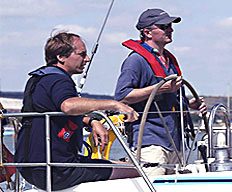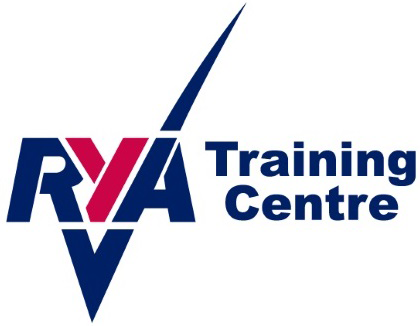
A course for aspiring skippers with some yachting experience and basic navigation and sailing skills.
Learn to skipper a short passage with the instructor on hand to give advice and encouragement and ensure your safety. Experience being in charge, taking credit when it all goes well and being responsible when it doesn’t.
If it’s help with navigation that you need, you should take our Day Skipper online theory course.
| Pre-course experience | 5 days, 100 miles, 4 night hours on board a sailing yacht |
| Assumed knowledge | Basic navigation and helmsmanship. Your theory knowledge should be to the Day Skipper theory level. Click here for details. |
| Minimum duration | 5 days, 3 weekends or 3 days plus 2 days |
| Minimum age | 18 |
| Course content | Preparation for sea, deck work, navigation, pilotage, meteorology, rules of the road, maintenance and repair work, engines, victualling, emergency situations, yacht handling under power, yacht handling under sail, passage making, night cruising |
| Whats included | All food except the evening of joining, wet weather gear and accommodation onboard, mooring fees, boat fuel. |
Maximum student:instructor ratio is 5:1
Practical courses are held in the Felixstowe, Suffolk area.
Full Day Skipper SyllabusThe Day Skipper course teaches pilotage, navigation, seamanship and boat handling up to the required standard to skipper a small cruising yacht safely by day in tidal waters with which the student is familiar.
1. Preparation for sea
Is able to prepare a yacht for sea, including engine checks, selection of sails, securing and stowage of all gear on deck and below
2. Deck Work
Can reef, shake out reefs and change sails to suit prevailing conditions
Can prepare an anchor, mooring warps and take charge on deck when mooring alongside, coming to a buoy, anchoring, weighing anchor and slipping from a buoy or alongside berth
3. Navigation
Is proficient in chartwork and routine navigational duties on passage including:
Taking and plotting visual fixes
Use of electronic navigation equipment for position fixing
Use of waypoints
Working up to DR and EP
Estimating tidal heights and tidal streams
Working out course to steer to allow for tidal stream, leeway and drift
Knowledge of IALA buoyage
Maintenance of navigational records
Use of echo sounder and lead line
4. Pilotage
Can prepare and execute a pilotage plan for entry into, or departure from, harbour
Understands the use of leading and clearing lines
Use of transits and surroundings as aids to pilotage
5. Meteorology
Knows sources of forecast information
Can interpret shipping forecasts and use a barometer as a forecasting aid
6. Rule of the road
Has a working knowledge of the International Regulations for Preventing Collisions at Sea
7. Maintenance and repair work
Understands and is able to carry out maintenance tasks
Knows the properties and uses of common synthetic fibre ropes
8. Engines
Knows how to change fuel and water filters, pump impeller and to bleed the fuel system
9. Victualling
Understands how to victual a yacht
10. Emergency situations
Is able to take correct action as skipper for recovery of man overboard
Understands distress flares and how to use a liferaft
Can operate a radiotelephone in an emergency and send a distress message
Understands how to secure a tow
Understands rescue procedures including helicopter rescue
11. Yacht handling under power
Can bring a boat safely to and from an alongside berth, mooring buoy and anchor under various conditions of wind and tide
Can steer and trim sails effectively on all points of sailing
12. Passage making
Can plan and make a coastal passage, taking account of relevant navigational hazards and limitations imposed by the type of boat and the strength of the crew
13. Night cruising
Has experienced sail cruising at night, including leaving and entering harbour. Understands the special consideration for pilotage plans, keeping a lookout and identifying marks by night.
14. Seasickness
Working efficiency is unaffected/partially affected/severely affected by seasickness
15. Helmsmanship and sailing
Understands the basic principles of sailing and can steer and trim sails on all points of sailing
Can steer a compass course, under sail and power
16. General duties
Has carried out general duties satisfactorily on deck and below decks in connection with the daily routine of the vessel
